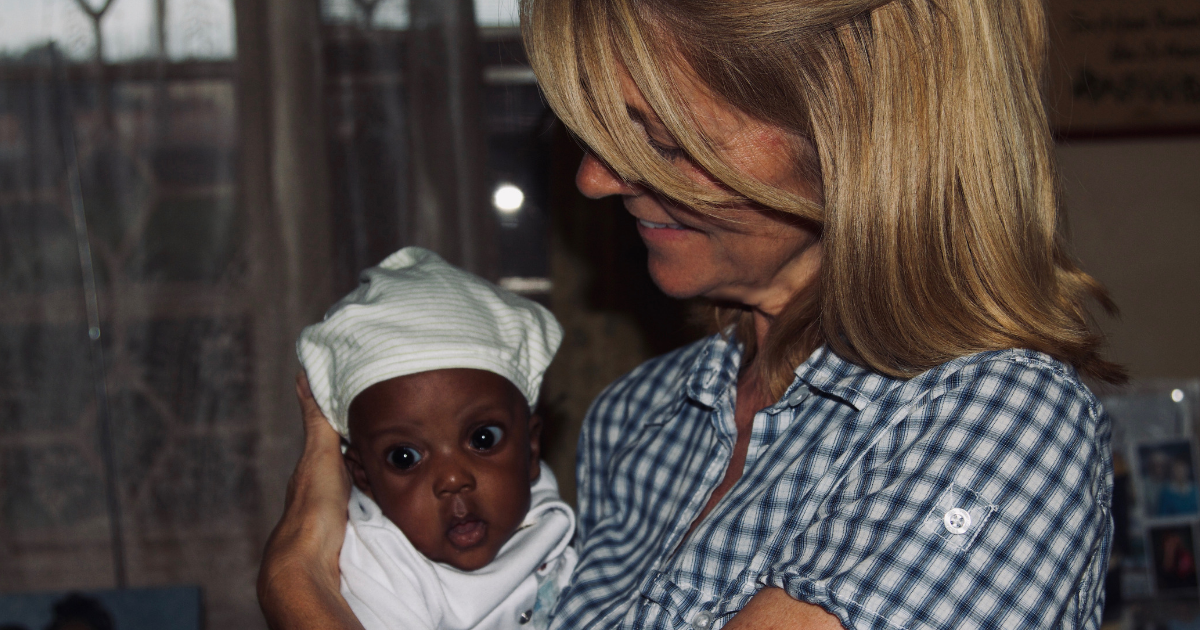
Bladder exstrophy in Uganda: My story begins with Solomon

My story with exstrophy begins in a small country located in eastern Africa called Uganda. Uganda is commonly referred to as ‘the Pearl of Africa’ given its abundance of natural resources and lush climate. It is a country of approximately 40 million people with over half the population under the age of 15. It is also a country that has an estimated 50-60 children born each year with bladder or cloacal exstrophy.
In 2010 my family moved to Uganda to work with a non-profit organization serving AIDS related orphans by providing school fees, medical care, and other programs. My husband and I had been involved with this organization for several years – we both served on the board and had traveled to Uganda several times.
Uganda became our new home and our Ugandan staff would become our family. We knew most of the staff from our previous visits, and we knew that one of our staff named Mary was due to have her first baby about the time we were to arrive. This was exciting because it was going to be the first baby born to a staff member and, at least for us, this was our new family.
Solomon is born
Mary gave birth to Solomon on July 16, 2010, literally the day we arrived in the country. He was a beautiful baby – but there was something terribly wrong and nobody seemed to know what it was, including us. Mary and her husband David made several trips back and forth from their village to the main government hospital of Uganda (a 3-4 hour drive on a good day).
One doctor tried to convince Mary it was somehow ‘her fault’ for his birth condition. This is not an uncommon perspective in Uganda, where there is still superstition and witchcraft. Because the doctor had no experience with exstrophy, or just knowing there were no resources to help this baby, Mary and David were told to take the baby home and let him die. And Little Solomon was getting sicker by the day.
“Take him home and let him die”
As an American who had just arrived in Uganda, “take him home and let him die” wasn’t in my vocabulary. I didn’t know how to do that – so my husband and I started networking using the internet, sending text messages around the world and making phone calls.
We eventually found a small missionary hospital in Kijabe, Kenya, with a doctor who told us, “if you can get him here alive I might be able to do something.”
Those were the most hopeful words we had heard so far, so my husband loaded up a jeep with about eight Ugandans, including one very sick baby, and they set off through Uganda, then Kenya, to find the hospital. It was a long 12-hour journey over roads that make our ‘dirt roads’ seem like paved highways!
Solomon gets a diagnosis of ‘cloacal exstrophy’
Solomon was quickly diagnosed with ‘cloacal exstrophy’ (our first official diagnosis!). The doctor performed a surgery that lasted the entire day to create a colostomy that would keep Solomon alive. A few weeks later, this fragile baby endured the return 12-hour drive back home to Uganda with a wide open abdomen exposing his bladder.
Following this, we knew that helping Solomon wasn’t going to be about a one-time surgery, but instead would be a lifetime journey and commitment for our family. Though we didn’t know it at the time, we had now joined the ‘exstrophy’ global community.
Janet and Pamela join forces
Four years into my journey with Solomon, I met Pamela Block, director of Association for the Bladder Exstrophy Association (A-BE-C). Through this relationship/partnership with Pamela and A-BE-C, as well as our continued support of Solomon, I’ve met other exstrophy children that are overcoming the odds within their Ugandan culture.
Solomon is now 8 years old and I have learned a lot about the challenges of exstrophy, and especially the challenges facing patients in countries like Uganda.
In many ‘third world’ countries, the problem/challenge is that we have no idea what happens to these children born with exstrophy. There aren’t good options for care, so after presenting a baby with exstrophy for medical care, parents are most often told to ‘go home’ (let the child die). Most of these children probably do die. But some do not and these are the ones I am committed to helping. These are the ‘fighters’ or ‘warriors’ because these are the ones that survive against all odds.
These are the ones often abandoned or orphaned, not because their parents don’t care, but because there is no hope for them to have a life in countries like Uganda. There are no resources, no doctors, and they live a life of shame and isolation.
Until now.
A-BE-C helps provide bladder exstrophy treatment, support and training
With the support of A-BE-C we’ve helped train doctors who can not only perform life-saving surgery, they are providing critical follow up care and education. They are a resource for families who come in with a baby that no one else knows how to help. And we are bringing hope and a support network to families who have spent their lives feeling helpless, hopeless and isolated.
My journey with exstrophy is just beginning. I have received so much in return since helping one young boy and his family eight years ago. Witnessing the bravery and perseverance of those within the bladder exstrophy community has truly humbled and inspired me in ways that I didn’t expect. I feel blessed by the opportunity to join this global family.
Janet Gibson
Board Member and Uganda Global Care Liaison
Association for the Bladder Exstrophy Community
You can help on November 27th!
A-BE-C is launching a global care initiative with a focus on Uganda for 2019. There will be opportunities for everyone in the community to become involved. Start by marking your calendar for Giving Tuesday on November 27. On that day donate whatever amount is right for you.
You can also set up your own campaign and approach your employer about a corporate match program. Most importantly, please watch for and share Giving Tuesday posts and emails with your friends, colleagues, and family, and encourage them to support the Uganda initiative.
Despite the glaring discrepancy of care and resources, families from around the world who have experienced bladder exstrophy have experienced the same emotions. There is always fear and isolation that goes along with this diagnosis. There’s always a stigma associated with this condition. There is always a feeling of being overwhelmed, of not having enough information, and of having to educate others.
We are all connected, and we can help provide support and hope to those who have none.
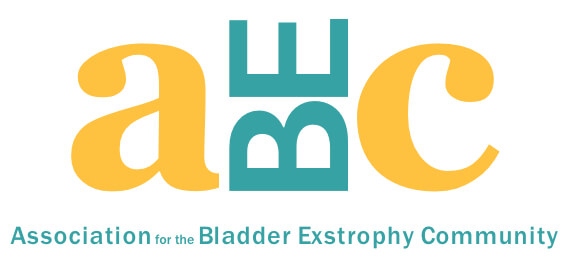

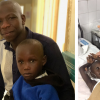
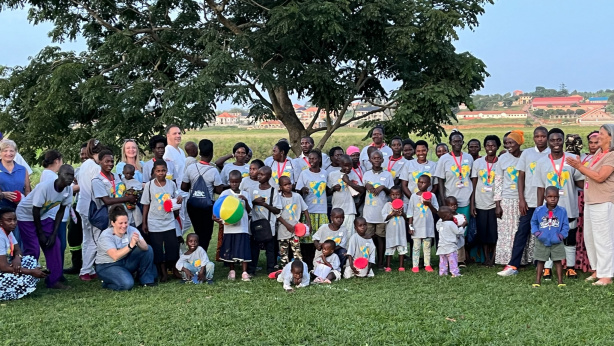
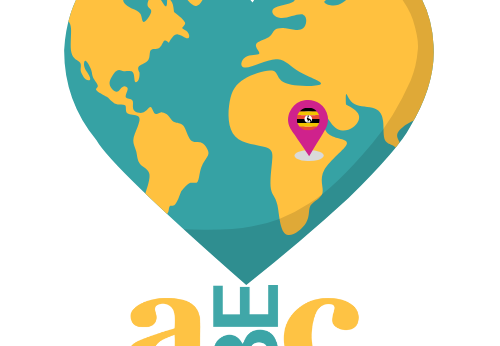
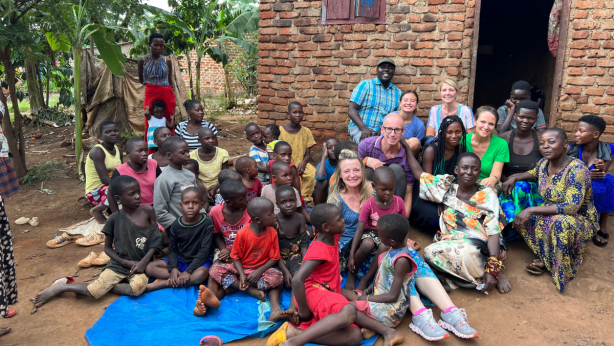
Pingback: Bladder exstrophy in Uganda: Undying hope and a long journey for treatment | Association for the Bladder Exstrophy Community
[…] Janet Gibson, A-BE-C’s Uganda Global Care Liason and Board Member and Tair, Ibriham’s father share their reflections on Ibriham’s journey with bladder exstrophy. […]
Pingback: A-BE-C to Better Serve Global Community With New Outreach Position | Association for the Bladder Exstrophy Community
[…] son Solomon was born with cloacal exstrophy and the family has been featured on our website. David and his wife Mary were tenacious in finding the best care for their son. They continue to […]